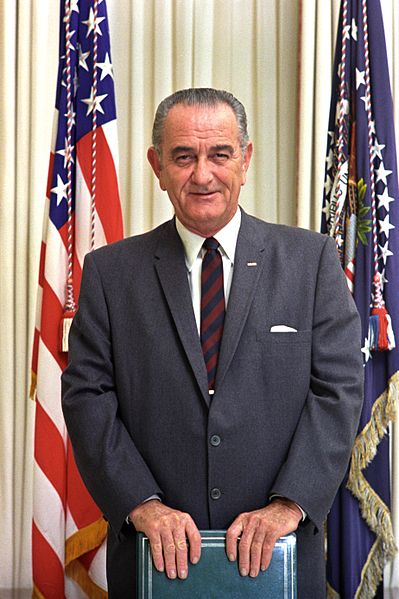Lyndon B. Johnson
Democratic
1961-1964
A New Deal senator from Texas, Lyndon Johnson was a perfect compromise candidate between the (mostly conservative) Southerners and (most Northern) liberals within the Democratic Party. Johnson had been in Congress for decades, and contrasted the relatively inexperienced President Nixon. In the 1960 presidential election, Johnson took advantage of Nixon's unpopularity, and used it to propel himself to victory.
Johnson met with civil rights movement leader Malcolm Little multiple times, and developed a personal friendship. However, the conservative Republican Congress prevented him from actually carrying out any pieces of civil rights legislation.
Johnson also reversed many of the cuts Nixon had made to the Department of Social Welfare and restored New Deal policies to the best of his abilities. Though taxes went up, so did spending for social programs. Johnson pushed for a government-funded "universal healthcare" program, similar to ones operating in much of western Europe now. This, too, was blocked by many Congressmen, who felt that Johnson was too liberal and too socialist.
President Johnson met with Soviet Premier Molotov, with who he hoped to improve relations. Talks between Johnson and Molotov were successful. Both nations agreed to reduce their nuclear stockpiles by a certain amount, and the Johnson years are seen by many people today as a period of peace and "detente" in the Cold War between the United States and Soviet Union. [1] Johnson was a very popular president, especially compared to Nixon.
Unfortunately, President Johnson had been plagued by heart problems for years now, and in 1964, while working on his reelection campaign, he collapsed while giving a speech, in Dallas, Texas. President Johnson was rushed to a hospital, but it was too late. He died the following day, leaving his vice president in charge of a grieving nation...
[1] Of course, this is ironic, since IOTL, both Johnson and Molotov are seen as much more hawkish when compared to their contemporaries...




